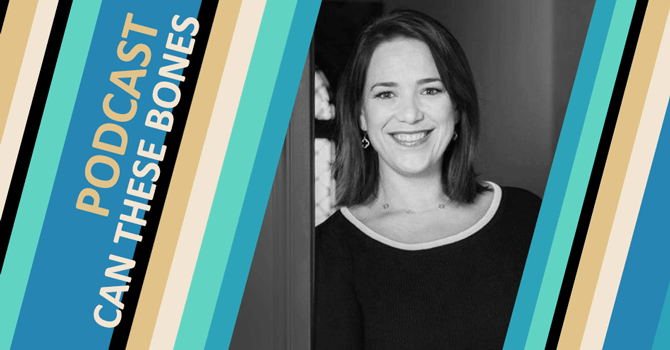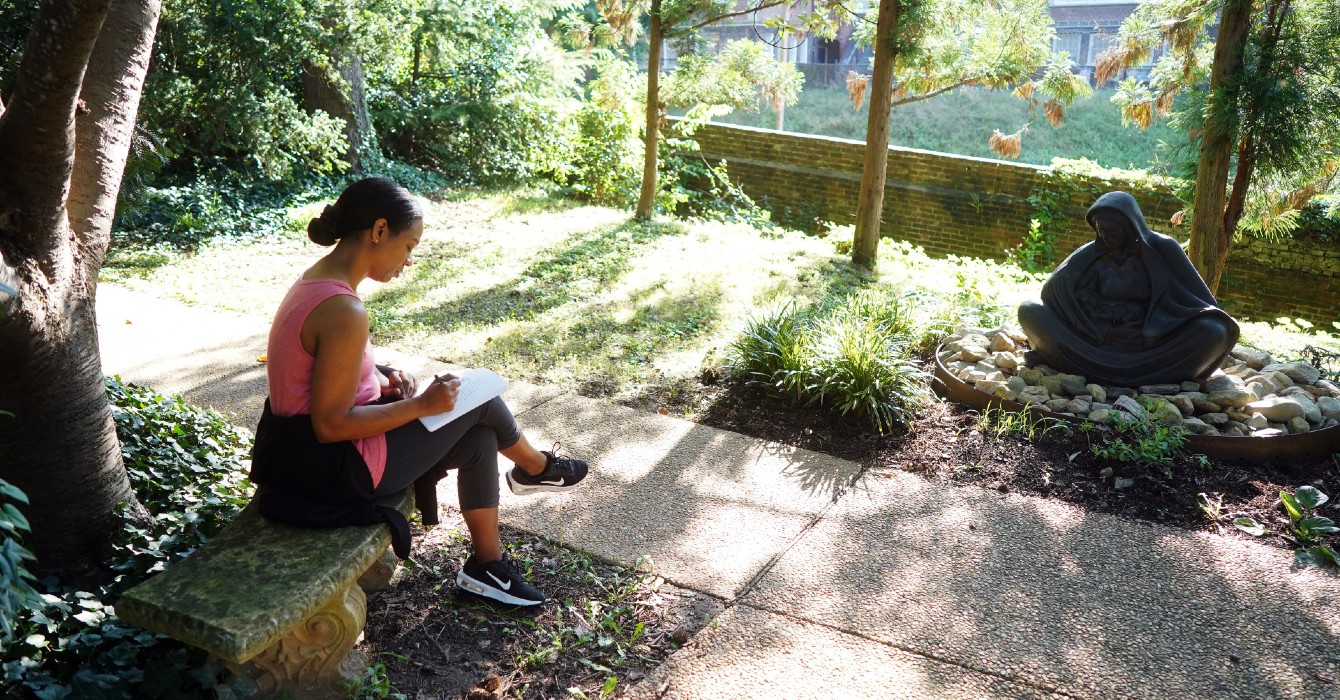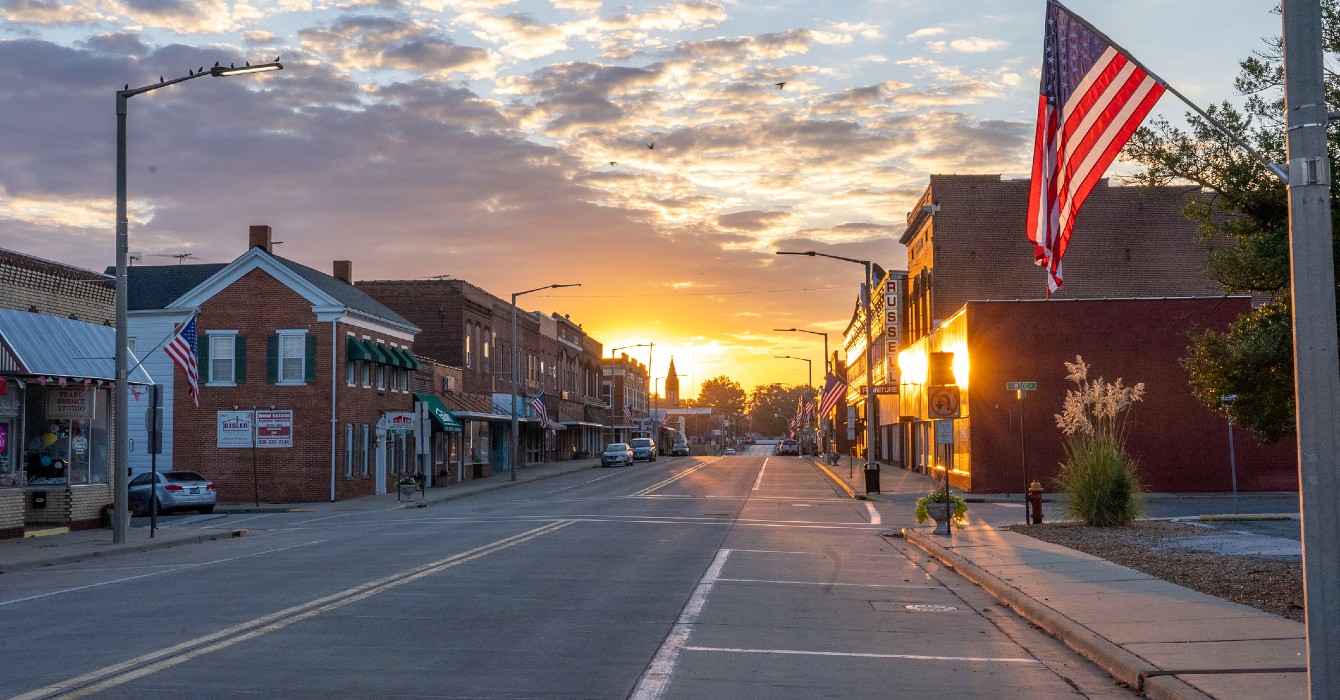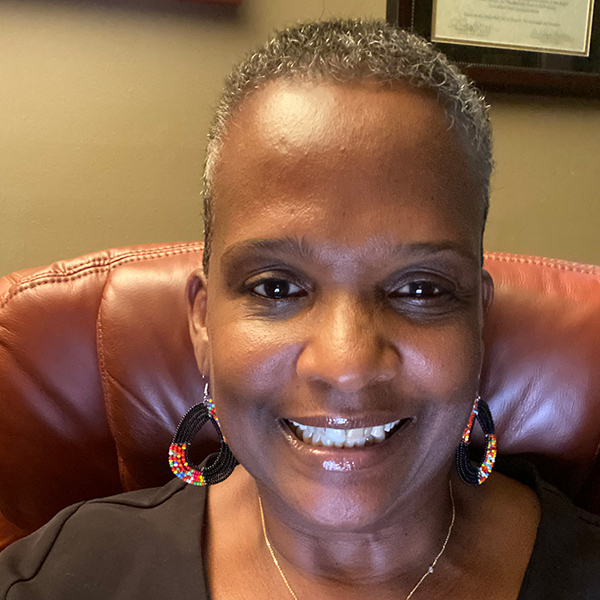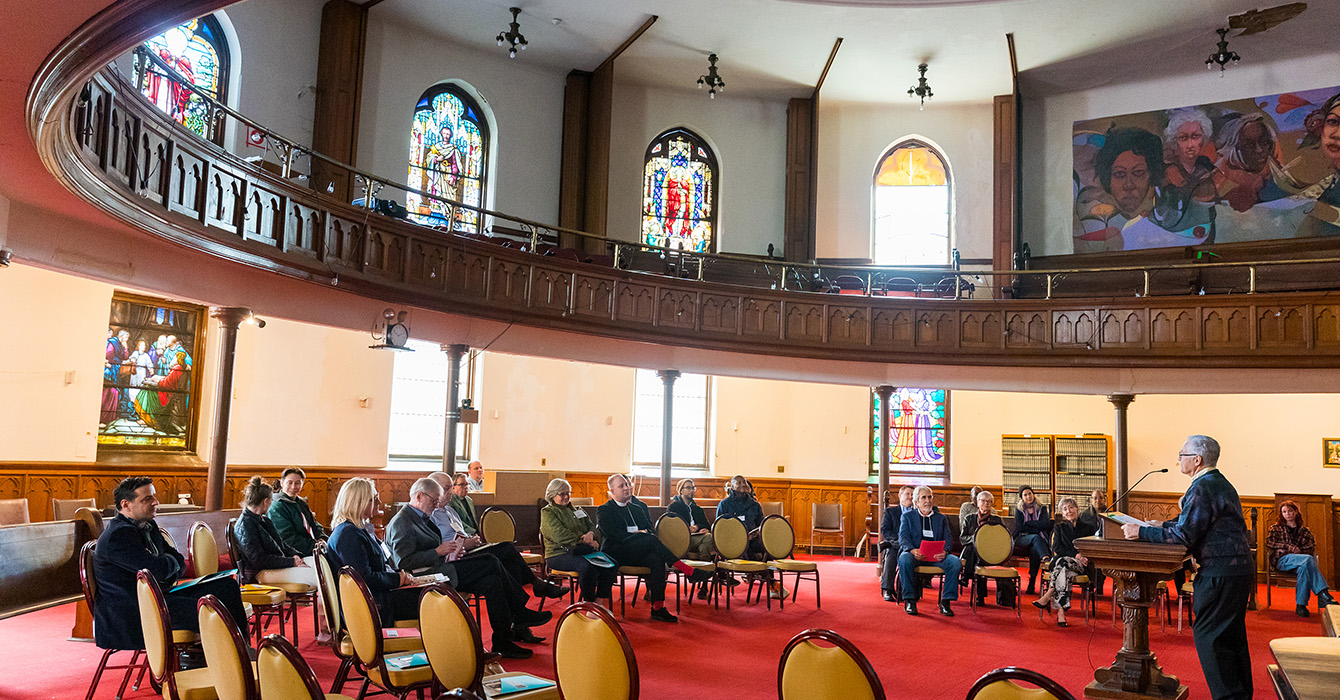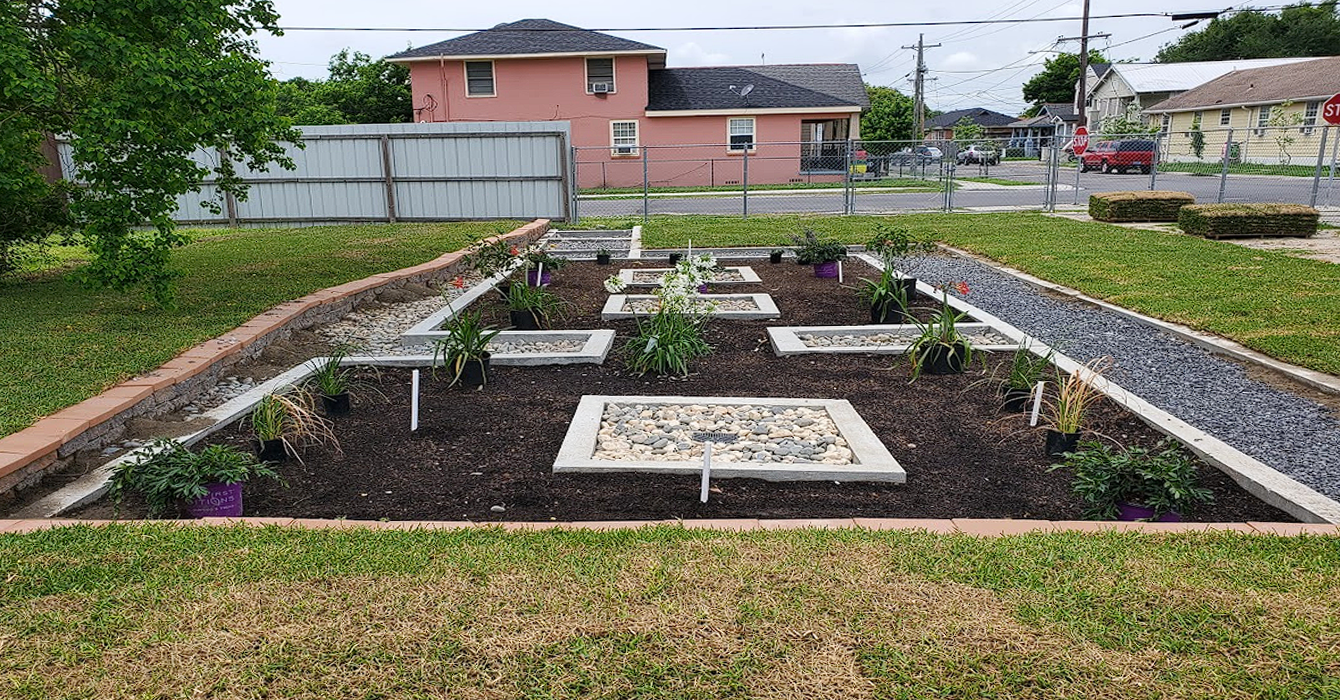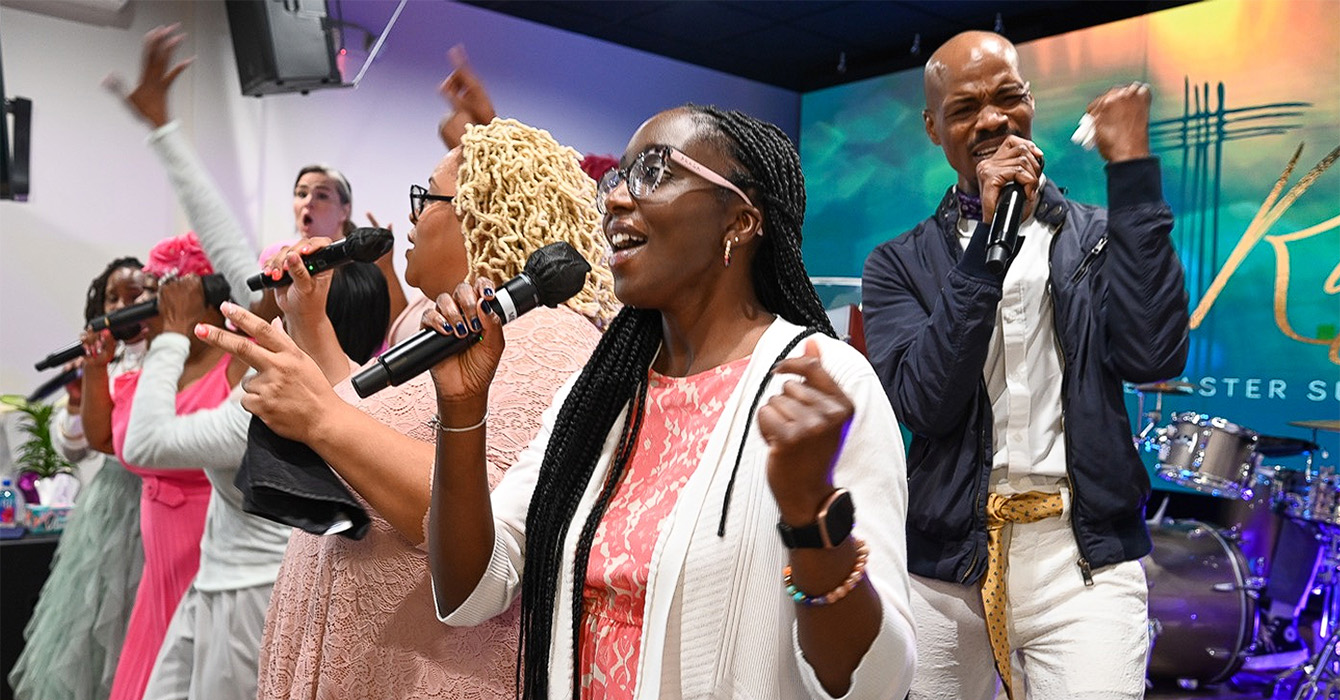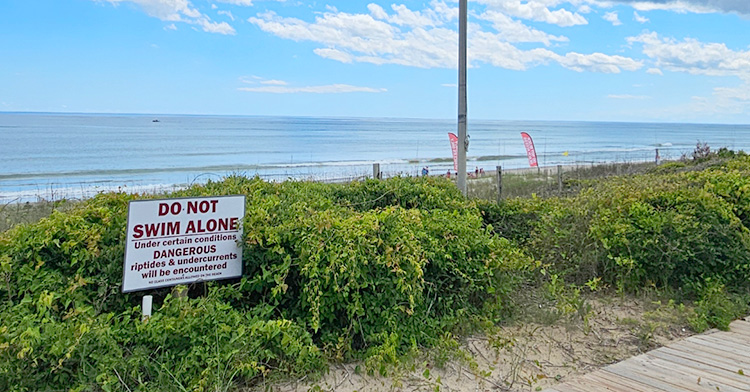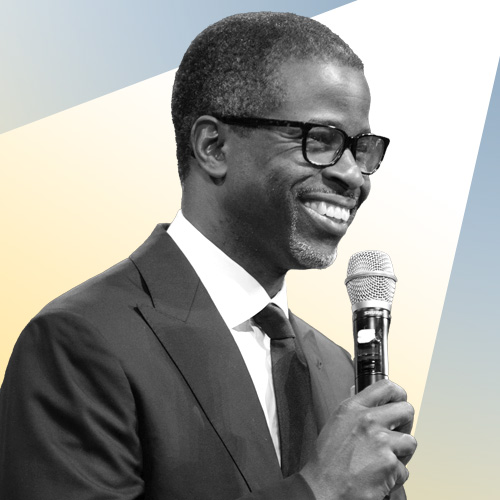Update: The Rev. Dr. Amy Butler served as senior minister of The Riverside Church in the City of New York from October 2014 until June 2019.
Moments before Sunday worship begins, the Rev. Amy Butler and members of the Calvary Baptist Church choir gather in a small annex next to the sanctuary.
Butler leads the group in a short prayer, then issues a warning.
“I’m really reaching this morning, preaching that Jezebel is wise,” she says with a grin. “So keep your facial expressions under control.”
Everyone laughs. In truth, it takes more than that to upset the congregation of Calvary Baptist.
Once, a man strolled into the Sunday morning service in superhero regalia, complete with cape and tights. Another time, a woman poked people with her umbrella during Communion. And during the invocation to prayer one Sunday morning, the police marched in and arrested a man in the front row.
There was a time when those incidents would have been shocking to the members of the stately red-brick church at Eighth and H streets Northwest in Washington, D.C. In its heyday, thousands packed Calvary’s pews and luminaries worshipped there, including congressmen, ambassadors and even President Warren G. Harding.
But if the historic, staid edifice has remained the same, the congregation has not. Today, it’s an urban church working hard to serve and to engage the neighborhood around it.
The congregation’s willingness to embrace the unexpected goes a long way toward explaining how a church once on the brink is now a thriving community asset.
Questions to consider
Questions to consider:
- How does your situation look when viewed through a hopeful lens?
- What is your vision of Christian community? How often is the vision repeated?
- What are your resources that are underutilized?
- With whom might you partner to meet community needs?
“If you want to be a Christian, you better get ready for life to be hard. This is not ‘Put on your pretty hat and go to church.’ Jesus Christ did some really hard things. Love your enemy? What could that mean in D.C. in 2009?” Butler said of her congregation. “What would Jesus expect us to do when feeling threatened or uncomfortable? Love God, love your neighbor. That’s what we’re doing here. That’s the essence of gospel.”
Two years of triage
Calvary Baptist members are proud of their church’s long history and its tradition of commitment to social change.
Founded by abolitionists during the Civil War, the church often was on the forefront of social change.
The Northern Baptist Convention, now American Baptist Churches USA, organized at the church in 1907. When women flooded into the workplace during World War II, Calvary was among the first organizations to offer daycare. It provided a canteen for military service members -- and assistance for conscientious objectors. In 1955, it became the first white church in D.C. to admit a black member.
But by the early ’90s, Calvary Baptist’s golden era was firmly behind it. The local families who’d once crowded its sanctuary had long since moved to the suburbs.
As neighborhood crime rose, Sunday attendance dropped. Those who stayed in the church had their hands full.
“They had ushers, they had greeters and they had people assigned to pick up the condoms and Scotch bottles off the front steps in the morning,” Butler said.
But the congregation, which is affiliated with the Alliance of Baptists, the American Baptist Churches and the Cooperative Baptist Fellowship, never really considered leaving D.C.: “They felt, ‘We are called by God to be in this place, and we have to figure out a way to do it,’ ” Butler said.
In 2003, the church needed to hire a new pastor. Though the church’s name still carried a measure of prestige, its situation -- a dwindling, aging congregation smack in the middle of a multi-ethnic neighborhood scarred by urban blight -- made it difficult to attract one.
The only one bold enough to accept the challenge was Butler, a 32-year-old mother of three and former associate pastor in New Orleans, who was eager to lead a diverse, urban faith community.
In her first months, she’d get a crash course in managing a multi-million-dollar renovation project, defusing staff conflicts and trying to revive a church with a Sunday attendance of no more than 50.
“The only way I can describe those first two years at Calvary is to tell you I was doing triage the whole time,” Butler said. “It was like I’d come upon an accident scene, and my job was to figure out who was bleeding the worst and stop the bleeding.”
Partners in mission
It’s a hard scene to imagine, sitting in Butler’s cozy office six years later. With its soft lights, framed photographs and cushy couches, the space radiates warmth and peace. So does Butler. But those first few years were chaotic.
Before she’d been hired, the church had taken a key step in ensuring its survival. Capitalizing on rising D.C. property values spurred by a new sports and entertainment arena, Calvary Baptist raised $11 million for a renovation project by selling some land to a developer for an office building.
But the church’s ability to manage a real estate deal of that magnitude was tested regularly. Developers, sensing Calvary’s inexperience, occasionally tried to take advantage of the church, said Butler, who quickly learned the art of confrontation.
“Pastors are pleasers. It’s in our DNA. We like people to like us,” Butler said. “That can get in our way.”
But soon Butler realized that the church’s assets -- in the form of real estate -- offered more than just a money-making opportunity. They also could play a role in reshaping and promoting the church’s mission and reaching out to the neighborhood.
Calvary’s office, worship, classroom and recreational space covered 50,000 square feet, much of which the church leased out to local nonprofits. At one point, as many as 15 organizations operated there. Some paid rent. Others didn’t.
When those groups had to vacate the church during a massive renovation project, Butler seized the opportunity to start fresh. She started hunting for nonprofit groups that complemented the church’s mission, groups that pledged to invest in the emotional, spiritual and financial health of the community.
“I really wanted to not perpetuate the model of the church being a landlord. I worked to emphasize the word ‘partner,’ ” said Butler, who hand-selected a small cadre of such groups that moved into the church when renovations wrapped up in 2005. “You have to have a clear mission. Otherwise, you’re just filling slots.”
Butler’s criteria for recruiting partners were straightforward. She sought out well-run nonprofits that were financially stable and clear about their missions. She talked to boards of directors -- “You can tell a lot about a nonprofit by its board” -- and looked over financial statements. Also, since she envisioned an ongoing partnership with these organizations, she made sure they were run by people she liked and respected. It was not a quick process, and she said “no” more often than “yes.”
“A lot of people wanted our beautiful new space,” she said. “We were pursued by a lot, lot, lot of organizations.”
Though the church did not set this as a goal, the partners it eventually chose primarily serve children. Kid Power-DC is a youth organization that explores the city’s history, and a nonprofit afterschool cooking program called Brainfood uses Calvary’s enormous commercial kitchen.
Butler vetted Brainfood for months, even meeting with some of its graduates, before agreeing it was a good partner. The teens who participate make everything from spanakopita to red velvet cookie sandwiches slathered with cream cheese frosting. They also prepare meals for the residents of a local psychiatric hospital who gather at Calvary Baptist for lunch each Thursday.
D.C.’s Commission on the Arts recommended Butler contact Theatre Lab, which works with up-and-coming actors, at-risk teens, seniors, youthful offenders, homeless shelter residents and people with HIV.
At first, Butler said, the organization was wary of partnering with a church. “They were concerned about us trying to impose a faith message on their programming or that we wouldn’t be welcoming,” she said.
But the partnership has proved fruitful. Theatre Lab uses the church’s Sunday school classrooms for children’s acting camps and hosts evening courses for adults, like movie-making, comedy boot camp and play writing.
Though Theatre Lab is secular, it recognized a kindred spirit in Calvary, Associate Director Jane Coyne said.
“When we look at the work we do, a lot of our work is outreach as a lot of their work is outreach,” Coyne said. “It’s a wonderful partnership.”
There’s a lot of what Coyne calls “cross pollination” among the church and its partners.
Children in Vacation Bible School participate in acting workshops, and Theatre Lab is helping the church produce a one-act play based on the Gospel of Mark. Calvary’s three-member choir got a serious boost three years ago after Butler recruited the Washington Youth Choir, which needed a new facility.
“It’s a whole big world out there. Churches that stay insulated are not going to be successful in their attempt to interest the community,” Butler said. “But we can’t do everything, so what can we do? We can find others who can be partners.”
‘A different kind of Baptist’
Growing and strengthening Calvary Baptist’s congregation was another challenge. Members endured some “textbook church conflict” when one employee who disagreed with Butler’s vision accused her of workplace harassment and circulated a petition to get her fired. Ultimately, that person left the church, but not before sowing the seeds of discontent.
Amy Dale, moderator of the church’s council, describes that time as “a year and a half of darkness.” Council meetings often erupted in shouting, she said. Progress was stymied as members argued over who was in charge of the church’s direction.
Before Butler arrived, the congregation had established a vision statement, declaring itself a multiethnic, multiracial, intergenerational place of worship committed to good works at home and abroad.
In the end, Butler said, she just kept repeating that credo, posting it everywhere and having the members recite it at every service. Pretty soon, their actions became louder than words.
“I’m the pastor, I’m the leader. I’m the one who has to point and say, ‘This is what you can be if you want.’ And to Calvary Church’s credit, they have done it,” said Butler, who returns to that mission whenever the church faces a tough decision.
Along with the mission came a new motto: “A different kind of Baptist.”
“It doesn’t sound very spiritual, but you have to find your niche. What is the calling of your church?” Butler said. “There’s a certain group of people who hear ‘Baptist’ and run screaming because they’ve been really hurt. So maybe that’s our niche, proving Baptist doesn’t have to be what you think.”
With the motto as its rallying cry, Calvary Baptist reached out to people in the community who might not otherwise seek to join a church: young professionals and recent college graduates still struggling to find themselves; disillusioned older folks who may not have set foot in a church in decades; gays, lesbians and transgendered residents.
Many of the newcomers are folks who were raised Baptist but grew away from the church over the years, said Associate Pastor Leah Grundset, who is often their first point of contact.
“This is a church where people give faith one more chance,” said Grundset, 27. “It’s a really special place to be. Even in chaos, I can’t imagine anywhere else I’d rather be.”
Chuck Andreatta, 54, hadn’t been in a church in three decades when he attended a Christmas Eve service at Calvary nearly five years ago. He’d been watching out his Treasury Department office window as the church’s new steeple -- replacing one felled by a tornado in 1913 -- went up across the street. Initially drawn by curiosity, he decided to stay.
“Wherever you are on the spiritual path, you’re welcome at Calvary,” said Andreatta, who was baptized in 2005 and is now the chair of the diaconate.
The average Sunday service draws between 150 and 200 people these days. It’s certainly no megachurch, but that’s three to four times the number who trickled in just a few years ago, Butler said. But members’ activities outside the sanctuary -- providing services for homeless people, tutoring high school students, organizing international mission trips, supporting a women’s shelter -- are extensive. And its impact is bigger than its numbers might suggest.
That kind of vitality is gratifying to longtime members like Victor Tupitza, 82, who has attended Calvary with his wife for 30 years.
“We are a very healthy congregation now. I think that’s impacting the whole spirit of the church,” said Tupitza, who noted that an influx of younger members has assured the church’s future. “It’s one thing to have faith the church is going to survive in the community. It’s another thing to believe the church is going to thrive in the community.”
Vitality, purpose and vision
More than 100 people are in the sanctuary on the Sunday Butler takes up the cause of Jezebel.
When she encourages the crowd to pass the peace, they not only shake hands with their neighbors but roam the sanctuary, hugging and catching up. It’s a diverse crowd: black, white, Asian, Latino, young professionals and older retirees, singles and families, suits and ties, jeans and T-shirts.
In this space, they celebrate what they have in common -- a firm belief in the gospel of Jesus Christ.
In her sermon, Butler doesn’t exonerate Jezebel. Instead, Butler tells the congregation, perhaps Jezebel’s story teaches us most how not to live. Jezebel was resourceful, goal-oriented and confident, but without God in her heart, those attributes amounted to nothing.
“In the end, she placed all her confidence and trust in her own abilities, a dangerous place for any of us trying to navigate the scary, difficult, pain-filled task of human living,” Butler said. “Learn from her devastating mistakes. Place your confidence where it belongs: in the hands of God.”
That sort of faith is far from easy, she said later. It requires a willingness to try something you might never have tried before, a willingness to step outside your comfort zone. A willingness to be more than you thought you could. And her congregation is willing.
“They know who they are, what God has called them to do in this place. This church is making a difference being a radical witness for Jesus Christ in this city,” she said. “There’s a life, a vitality, a purpose and vision in this place that many of them had not seen in years.”


